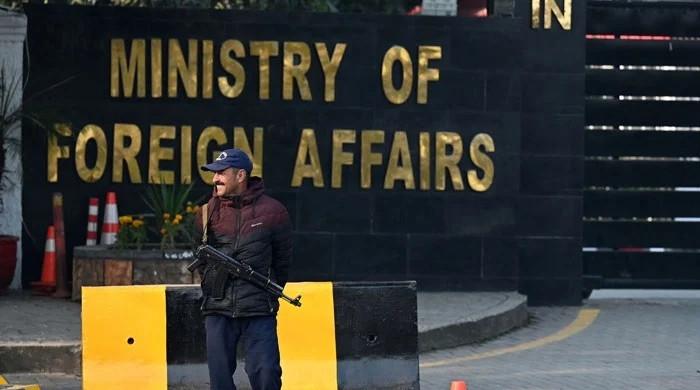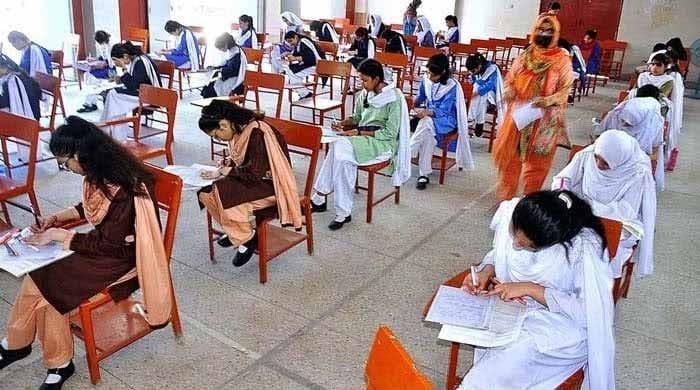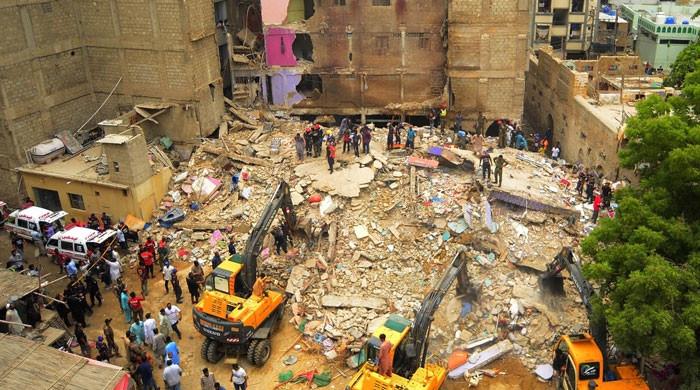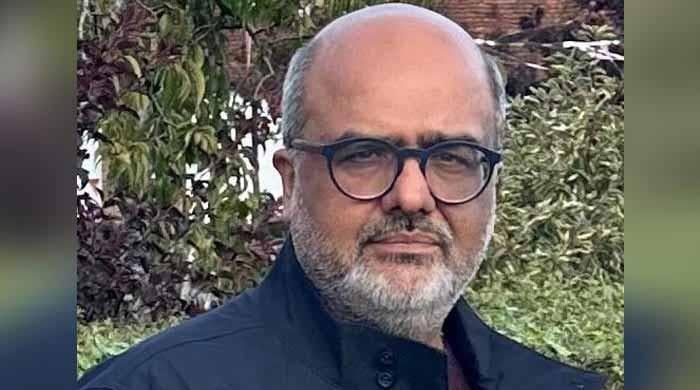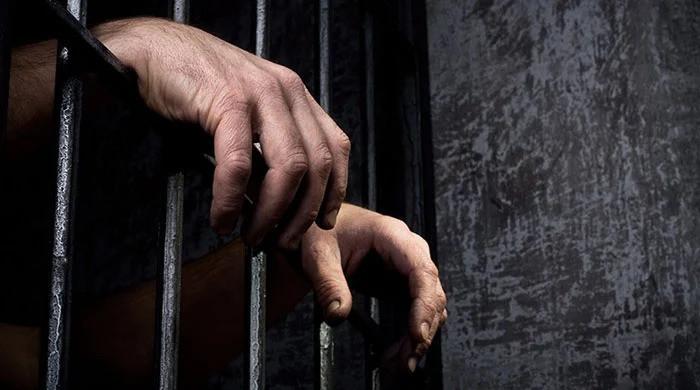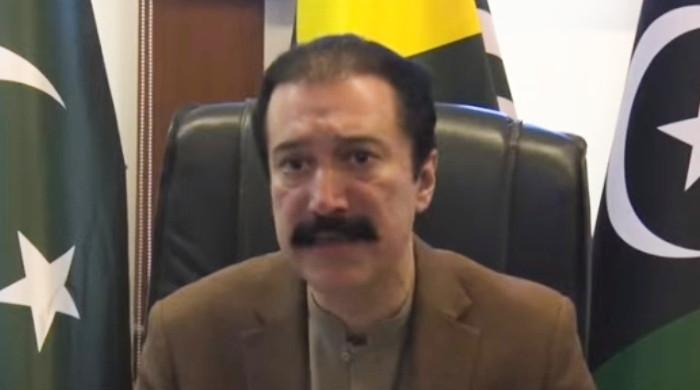In consultation meeting, MQM-P backs ECP on holding elections post-delimitation
"Poll watchdog should have issued the election schedule along with delimitation schedule to end ambiguity," says JI
August 28, 2023
- "ECP's decision to carry out delimitations is correct," says MQM-P.
- JI asks poll authority to fulfil duties as per the Constitution, law.
- "People should not be deprived of public representation," says JI.
ISLAMABAD: The Muttahida Qaumi Movement-Pakistan (MQM-P) on Monday backed the Election Commission of Pakistan (ECP) on holding polls after the delimitation of constituencies while the Jamaat-e-Islami (JI) asked the electoral body that it should have issued a polls schedule along with delimitation schedule to remove ambiguity.
Both parties made their stance clear when their delegations called on Chief Election Commissioner (CEC) Sikander Sultan Raja as part of their consultative process, as per the ECP’s official statement issued after the meetings.
The MQM-P delegation led by the party’s Senior Deputy Convener Dr Farooq Sattar informed the ECP that its decision to carry out the delimitations was “correct”, adding that they had reservations about the 2017 census.
The party also informed the ECP that an audit of the new census was carried out during the Imran Khan-led government on MQM-P’s demand. The Dr Sattar-led delegation informed the ECP that the PTI agreed to hold new polls based on a fresh census, adding that work on the process was launched after the new census was started.
“Karachi is a big city and people from different cities migrate to it and Karachi’s population has increased substantially,” said the MQM-P, and emphasised that delimitation should be based on the new census.
“Proper representation of the people should be ensured in the National Assembly and provincial assemblies,” the MQM-P said and also called for the renewal of electoral rolls.
On the other hand, the JI told the electoral authority that it should have started the consultation process with political parties earlier. It added that the elections have to be held in 90 days if the assemblies are dissolved prematurely.
However, it said that since the ECP has started the delimitation process it would have been better if the election schedule had been issued along with it to “remove ambiguity”.
“The Election Commission should fulfil its responsibilities according to the Constitution and law,” the JI said, adding that the National and provincial assemblies should not have been dissolved prematurely.
The party also emphasised that the Pakistani people should not be deprived of public representation.
On the other hand, CEC Raja told both parties that the ECP will complete the work on delimitation “as soon as possible” and hold polls immediately after the process is completed. “The Election Commission will also complete the delimitation of constituencies and renewal of electoral rolls simultaneously.”
On the election code of conduct, the ECP informed them that all political parties would be consulted again.
Earlier this week, sources had told Geo News that the ECP had decided to consult all major political parties, including the PTI, regarding the date of general elections that are expected early next year.
As per the officials, who spoke on the condition of anonymity, the ECP had decided to consult the political parties separately on developing an election roadmap as well as issues related to delimitation and voter lists.
The ECP has already held consultations with the PML-N, PTI and Jamiat Ulema-e-Islam-Fazl (JUI-F).
In those meetings, the JUI-F and PML-N had backed the ECP to hold general elections after the delimitation while the PTI had urged the electoral watchdog to drop the process and conduct polls within 90 days.
Uncertainty around polls
The decision to hold the consultative process came after uncertainty emerged on when the polls will be conducted.
The Shehbaz Sharif-led government dissolved the National Assembly on August 9, while Sindh and Balochistan assemblies were also prematurely dissolved to allow the electoral authority to hold elections in the country within 90 days instead of 60 days if the legislature completed its constitutional tenure.
However, the ECP may not be able to hold the polls within the stipulated time as the Council of Common Interest (CCI), days before the dissolution of the assemblies, approved the 7th Population and Housing Census 2023.
The CCI meeting chaired by then-prime minister Shehbaz Sharif approved the final results of the census reporting the country’s population at 241.49 million with a growth rate of 2.55%.
The CCI approval made it constitutionally mandatory for the poll watchdog to hold elections following fresh delimitations in the light of the results of the 7th census.
According to Article 51 (5) of the Constitution, the seats of the National Assembly to each province and the federal capital shall be allocated on the basis of population in accordance with the last preceding census officially published.
Subsequently, on August 17, the ECP announced the schedule of new delimitations to be carried out as per the new census approved by the CCI.
As per the schedule, the new delimitation of constituencies nationwide will be notified in December this year.
The ECP schedule showed that fresh delimitation will take nearly four months, meaning the general elections in the country cannot be held within 90 days of the dissolution of the provincial and national assemblies.




